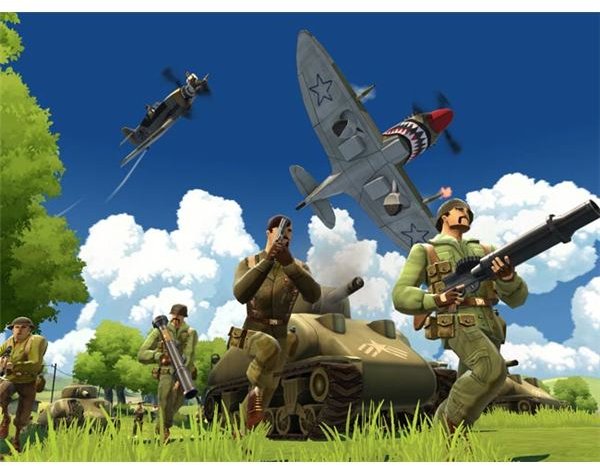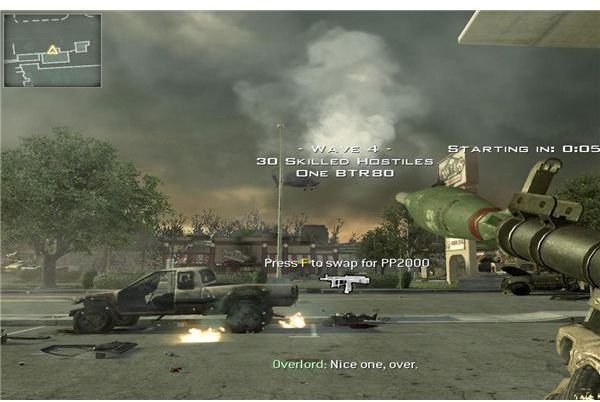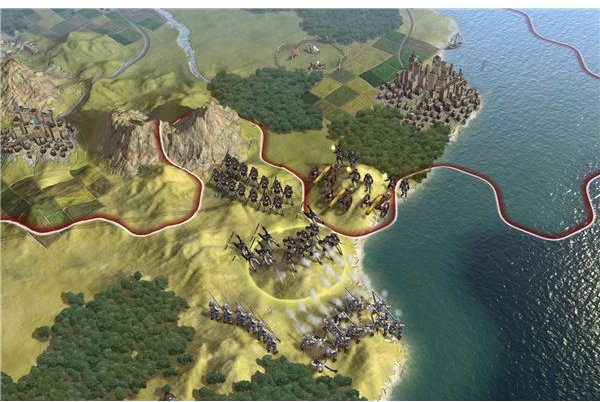The Death of Single Player Games? No Way

There have been predictions about the demise of single player games kicking around in the industry for quite some time. Eurogamer just reported on comments from “veteran video game consultant” Mark Cerny at a Sony-organized panel event. He thinks that because of increased connectivity single player games have no future. He went on to say that he thinks anyone who doesn’t move with the times and find a way to take advantage of these new connections will be criticised for lack of innovation.
IGN did a feature on the same panel called “How Video Games Will Look in 2021” and they included the death of single player gaming as one of their predictions.
At the end of last year you could find EA Games label President Frank Gibeau saying that the traditional single player model is finished and online is where the innovation is at.
You only have to look at the comments on all three articles to see a pretty strong response from fans of single player games. These kinds of predictions are always exaggerated for effect. Before we discuss why single player games will never die let’s take a look at the reasons behind the prediction.
What’s Wrong with Single Player Games?
Actually from a developer and publisher point of view there’s a lot wrong with single player games. It has been common knowledge for quite some time that the percentage of players who actually finish single player games is low. According to some reports it could be as low as 10%. To produce a single player game that offers hours and hours of entertainment is a massive undertaking for any developer and the majority of games save some of the best content for late on. The idea that a huge number of people who play the game never even see the ultimate set-piece that they slaved over is pretty depressing.
This partly accounts for the decline in the difficulty curve of most modern games. The majority of single player games are far easier to play through than they were ten years ago and it’s not uncommon for developers to front load them to make sure players get the full experience they envisioned. They also tend to be shorter than they once were.
Another big factor is AI or the lack of it. Most single player games feature scripted NPCs (non-player characters) with no real intelligence worthy of the name. It is very difficult to create opponents for players that are up the task and why bother when you can get a human player to take on the role?
From a publisher point of view single player games are costly and they offer a one-time pay out when they are sold. They’d much rather hook you into an online service that allows them to advertise to you, maybe sell you some additional content or even work in some form of micro-payment. They are already experimenting with free games that aim to create revenue down the line from micro-payments for costumes, weapons, advancement and other forms of exclusive in-game content.
There are problems with single player from a player perspective too. Computer controlled opponents are often too weak or too strong. It is frustrating if you get stuck, although this is less of a problem now with all the online walkthroughs that are available. There’s no social aspect to single player, although that’s not a negative for everyone. Once you complete a single player game there is often no replay value (there are plenty of exceptions to this rule).
What’s Wrong with Multiplayer Games?

We can better explain why single player games will never die out by looking at what is wrong with multiplayer gaming. This time we’ll look at it from the perspective of the gamer.
You need a decent Internet connection. No big deal for most people but it can be a problem for some. Just look at the vitriol stirred up by gaming platforms that require you to be signed in and online in order to play single player on your local machine – not a popular development.
Abuse and idiocy are rife in multiplayer games. Some players refuse to play the game properly. Some players deliberately try to ruin your game (as too many of you will already know they’re called griefers). Some players are quick to throw insults out and make all sorts of offensive comments.
The stress of competition with real human opponents puts a lot of people off. They expect to be entertained by their games, they’re playing a game in the first place in order to unwind and de-stress. The last thing they need is to be owned by some gloating 13 year-old who plays 24 hours a day.
Even non-competitive multiplayer games have problems. I’m a big fan of co-operative gameplay but it doesn’t let people play at their own pace and it’s no fun if you’re being co-operative and one of your teammates isn’t. When your buddy drops out at a crucial moment (even if they’re replaced by AI which is often the solution) it breaks the reality and immersion.
I don’t want to have to organize my gaming sessions either. I just want to turn it on when I’m in the mood and play. The amount of time you can waste finding teammates or opponents and actually getting into a game can be very frustrating – some games are better at handling this than others.
Is The Demand for Single Player Really in Decline?

I can’t escape the thought that all this talk of multiplayer being the future is more to do with developers, publishers and fans of multiplayer. Personally I like both. There’s no way to get the same level of satisfaction from co-operative or competitive gameplay as you do with multiplayer but there are times when I want to immerse myself in a single player game. Single player games are still hugely popular, a lot of these arguments are really focussed on the first-person shooter genre and it doesn’t represent gaming at large.
Titles like Grand Theft Auto IV, Civilization V and Shogun 2: Total War offer multiplayer modes but most players buy them for the single player experience. It has been reported that Mass Effect 3 will include some co-op multiplayer but fans of the series seem to be perfectly happy with it as a single player experience. Surely the idea that single player gaming will die should be driven by gamer demand? Well, where’s the evidence that people don’t want single player games anymore?
There’s still plenty of room for innovation in the single player space and that innovation does not have to be adding a multiplayer element. As discussed there are also a number of glaring problems with multiplayer that the industry needs to address before they will attract a wider audience. I have no doubt that multiplayer gaming will continue to evolve and improve but that process is not incompatible with a healthy and popular single player gaming scene.
References
- Wired, http://www.wired.com/gamelife/2010/12/ea-single-player/
- CNN, http://edition.cnn.com/2011/TECH/gaming.gadgets/08/17/finishing.videogames.snow/
- IGN, http://uk.games.ign.com/articles/118/1189659p1.html
- Eurogamer, http://www.eurogamer.net/articles/2011-08-16-single-player-only-games-gone-in-3-years
